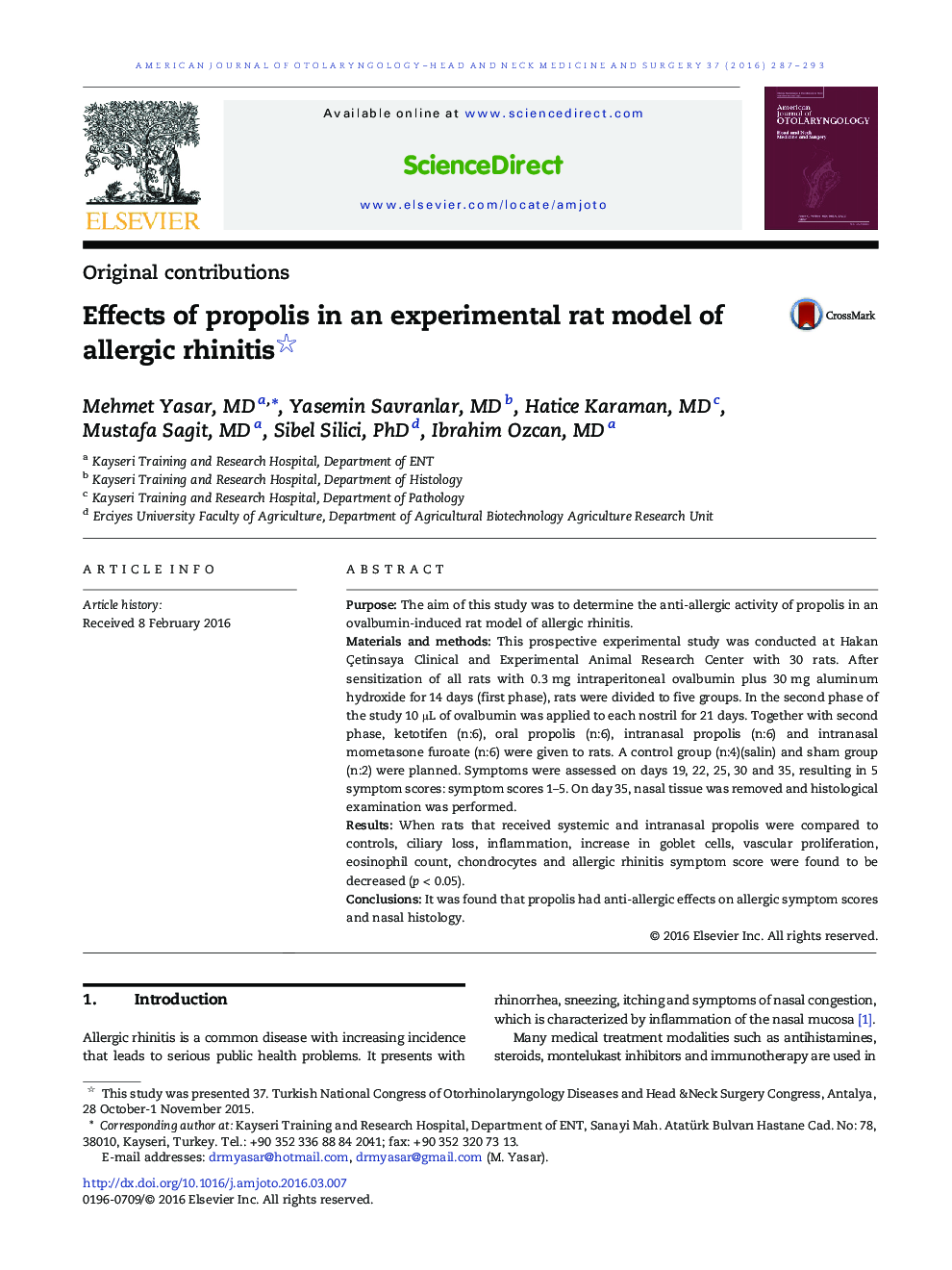| Article ID | Journal | Published Year | Pages | File Type |
|---|---|---|---|---|
| 4102910 | American Journal of Otolaryngology | 2016 | 7 Pages |
PurposeThe aim of this study was to determine the anti-allergic activity of propolis in an ovalbumin-induced rat model of allergic rhinitis.Materials and methodsThis prospective experimental study was conducted at Hakan Çetinsaya Clinical and Experimental Animal Research Center with 30 rats. After sensitization of all rats with 0.3 mg intraperitoneal ovalbumin plus 30 mg aluminum hydroxide for 14 days (first phase), rats were divided to five groups. In the second phase of the study 10 μL of ovalbumin was applied to each nostril for 21 days. Together with second phase, ketotifen (n:6), oral propolis (n:6), intranasal propolis (n:6) and intranasal mometasone furoate (n:6) were given to rats. A control group (n:4)(salin) and sham group (n:2) were planned. Symptoms were assessed on days 19, 22, 25, 30 and 35, resulting in 5 symptom scores: symptom scores 1–5. On day 35, nasal tissue was removed and histological examination was performed.ResultsWhen rats that received systemic and intranasal propolis were compared to controls, ciliary loss, inflammation, increase in goblet cells, vascular proliferation, eosinophil count, chondrocytes and allergic rhinitis symptom score were found to be decreased (p < 0.05).ConclusionsIt was found that propolis had anti-allergic effects on allergic symptom scores and nasal histology.
